John Wick 4: A Brief Study of Hate
0 comments

"And if I should have prophecy and should know all mysteries, and all knowledge, and if I should have all faith, so that I could remove mountains, and have not charity, I am nothing." 1 Corinthians 13:2
[ Warning: John Wick 4 Spoilers ]
Hate is a very exciting emotion, according to Ballan in Gilda... in many ways, the only thing that feels like anything anymore to a man who has lost all he has ever loved:
For a person like John Wick, grief is a distant memory when hatred is used as a proxy to fill the vacuum.
There are two moments that are so distinct in John Wick 4 that make it stand out from the rest of the films. --This is what I'd like to highlight. Not in the fashion of a movie review, so much as a wandering blind man's musing.
THE FIGHT OF MANY WATERS
For one, John's fight with the enormous gambler, Killa Harken, powerfully reinforces that John is unlucky. His best cards are the worst cards. His best times are the worst times. His greatest love, his greatest tragedy. It is easy to say and easy to forget, as Gilda so rightly remarks.
His song is so simple, a wailing wolf in the night: met by an uncaring gaze of waters.
It has been the defining trait of his existence, and we may submit, even before his joining the underworld as a hitman: He is alone, a piece of everyone that is unlike all the rest and the gyre turns on him alone.
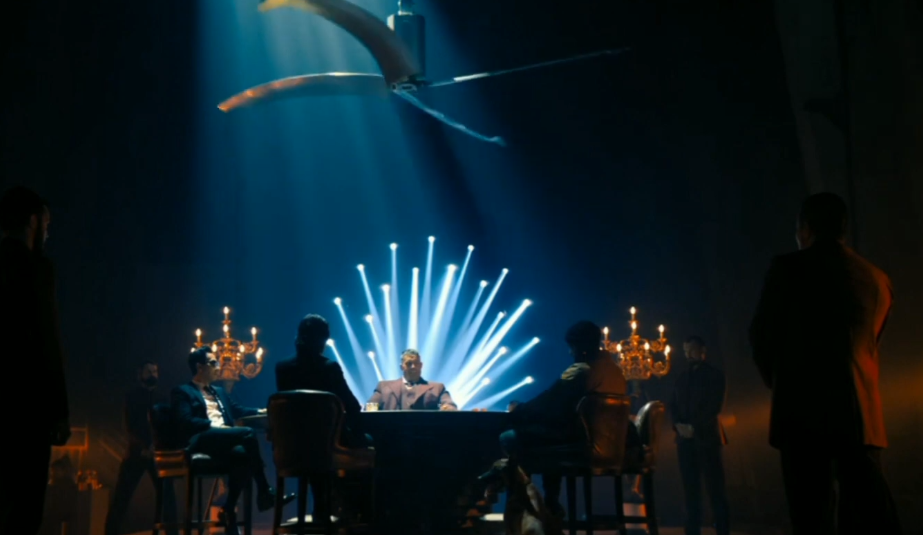
Back to the scene:
In the fight with Killa Harken, John is thrown from unsurvivable heights and lands only to be up again ready to take out his enemies with nary a gun at his disposal.
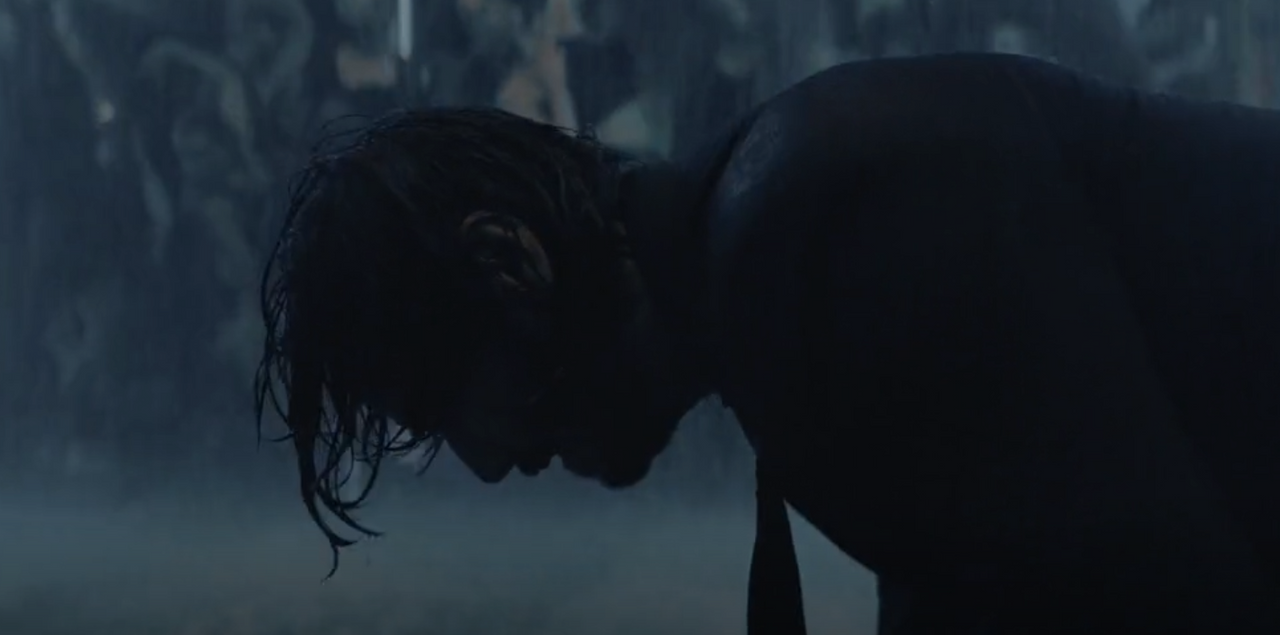
This moment is distinguishing because as he stands up, the scene that surrounds him is a cascade of waters on all sides, so that he emerges from the waters as if a lion - and at the same time - the water is people: colors of fury, rage, hatred looking back at him, dancing demons and gods and nations: the same foe he has chosen in order to fulfill his frustrations with after the loss of Helen.
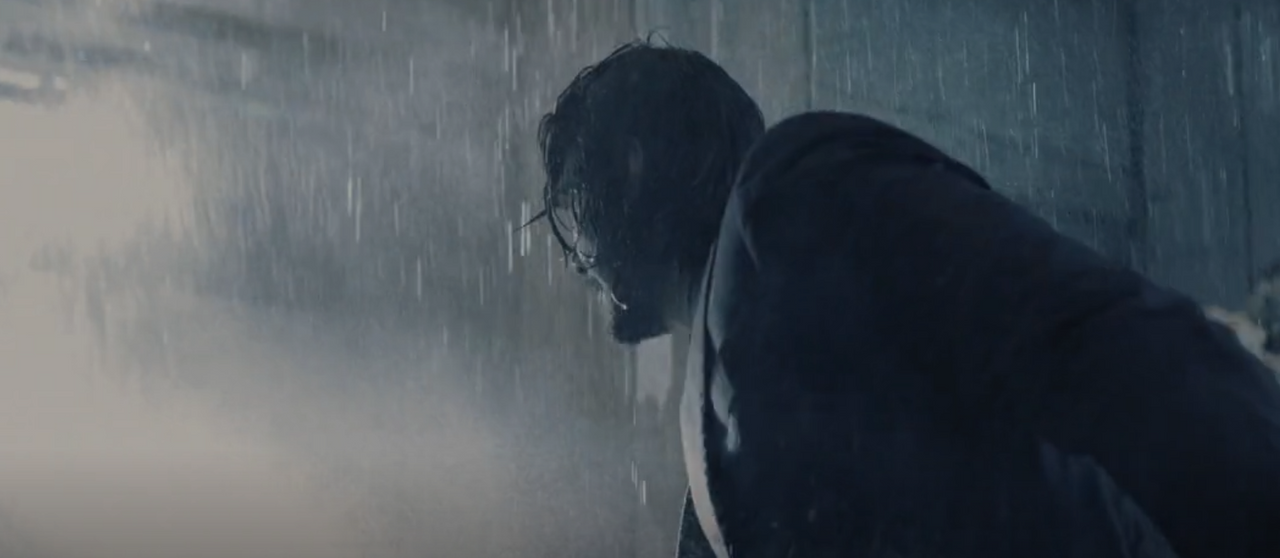
He won't wake up until all the foes are dead, but he also lives in the hatred of his foes which he summons himself.
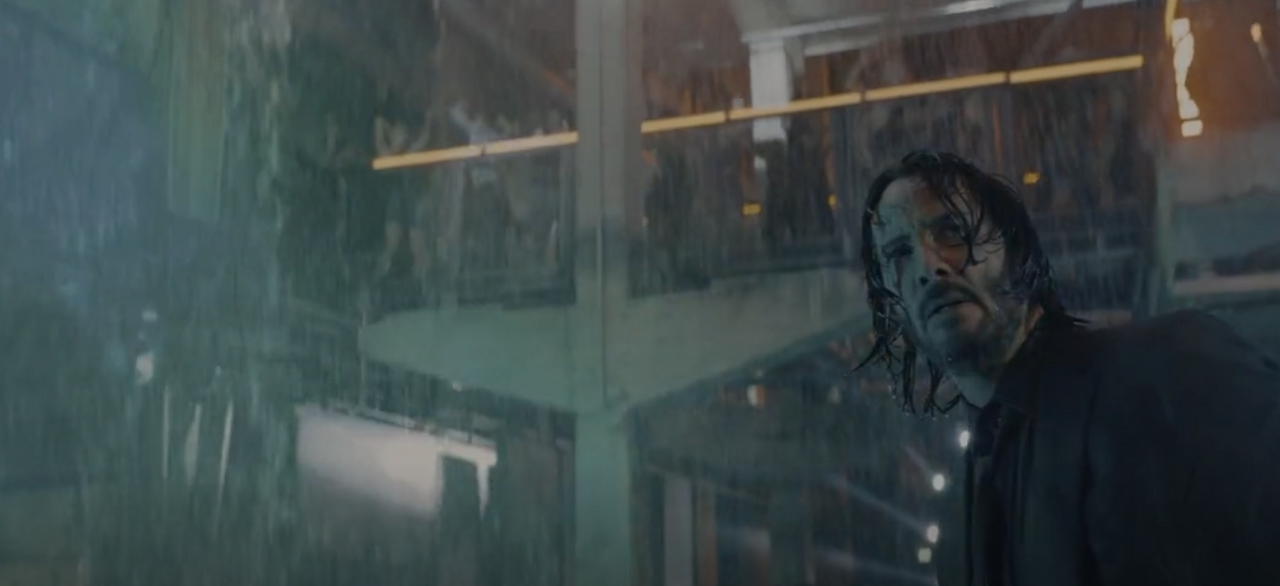
His proto father, the owner of the Continental, has brief guiding discussions on John's prospects for freedom and future. At their conclusion, we find John's choice remains the same: to flee is impossible, so to stand and fight remains the only thing left of him.
The Continental owner asks, again, "Where does it end?"
It would seem the observers silent, know the outcome of an endless battle with hate will not resolve grief.
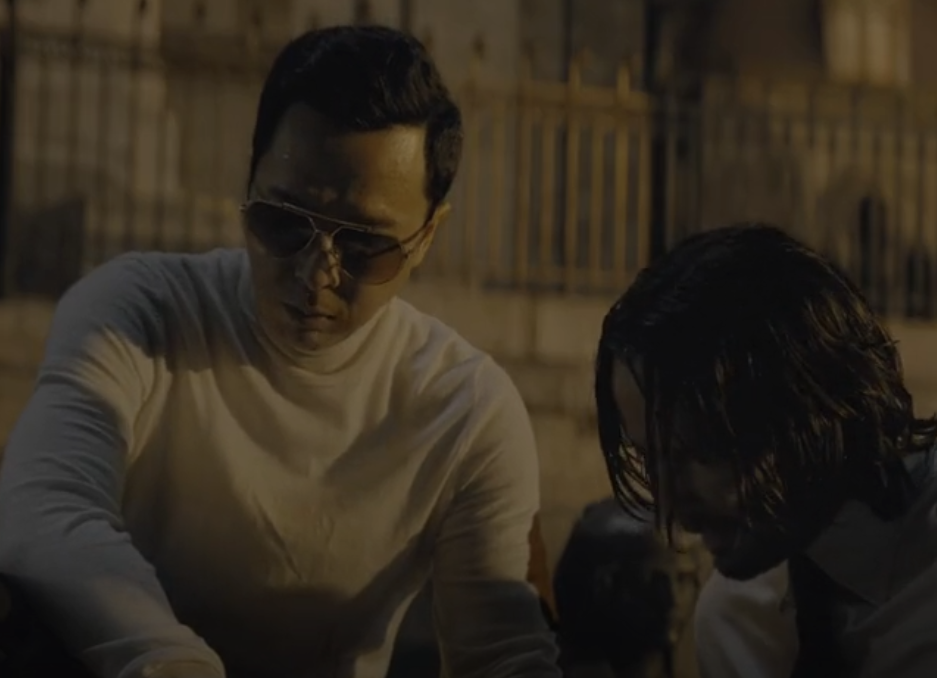
But perhaps, John's brother, the Blind Man, who appears in John Wick 4, is the answer to why a proxy is necessary to gain Helen's memory:
"Those who cling to death," and "Those who cling to life," - is the choice that is between the two who carry different, yet equal missions. The Blind man works in an attempt to ensure the safety of his daughter, while John Wick, attempts to ensure there is still a battle to fill the void left by Helen's death.
One keeps the memory alive through hate, the other keeps the day. The harmony between them is why John chooses "Loving Husband" as the phrase to put upon his gravestone.
Waking Up Again
When John Wick sits at the stairs in one late scene, we finally come to the precious waking: Hate has been satisfied, Fury has been put to rest in brotherhood; where is John? Where is Helen?
He stirs into the far corners of memory and time, and all the freedom he has "earned" through hate. It is the same again, the house is empty and no voice sings in it that he has longed to hear. We see a man waking from wrath, from hatred, only to find a bitter, long hall of lost friends. Faces on gravestones, ages upon ages of people that peopled his worlds but no one to find that would care for him as Helen did.
He visits the old place, and it is there but incomplete without her. We almost see John pick up wrath again, frustration, hatred. We see it is possible to make that choice again, to summon yet another proxy so that he has a reason.
Instead, he gives in and grief, like a towering inferno consumes everything of him, and he melts into pieces again:

You can see the whole dissipate easily, Krakatoa as he steps down heartlessly, soullessly, lovelessly into wakeful life.
The Continental and The King discuss John's fate as they look at his plot:
"Is he in heaven or hell?"
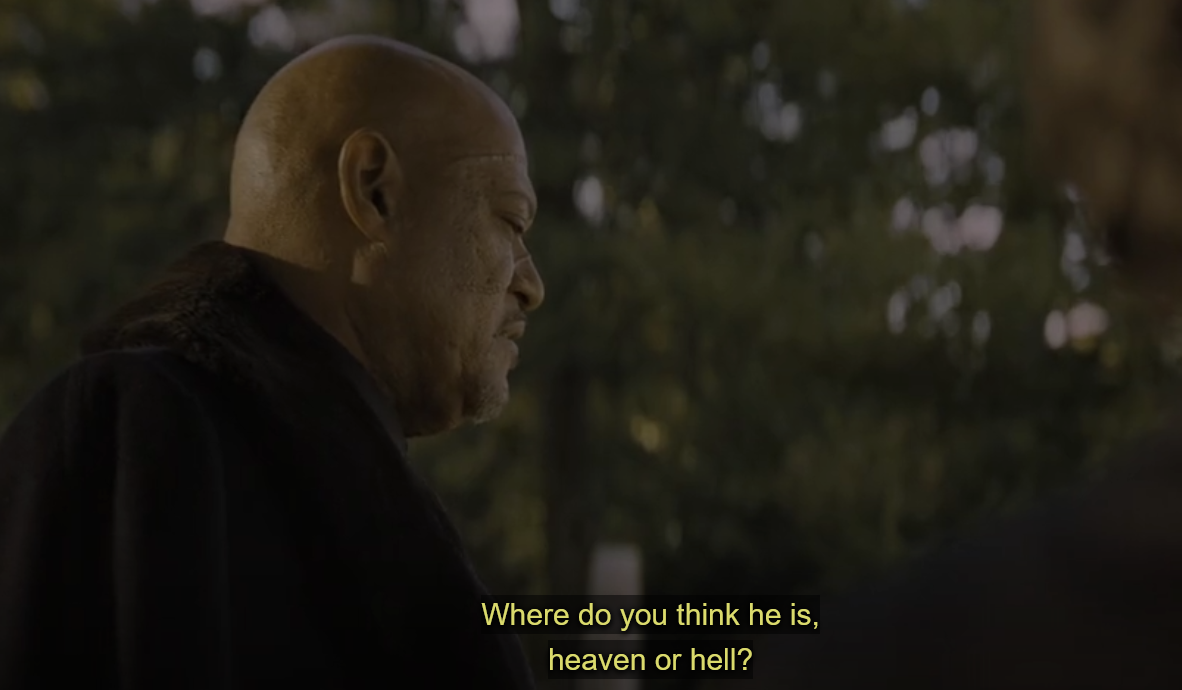
It would depend on where a man chooses to rest. Some turn to sculpting, to painting, to musical arts. But for a man who has tasted all there is to taste, only one thing mattered above all precious things and it was lost.
"And if I should have prophecy and should know all mysteries, and all knowledge, and if I should have all faith, so that I could remove mountains, and have not charity, I am nothing." 1 Corinthians 13:2
Comments